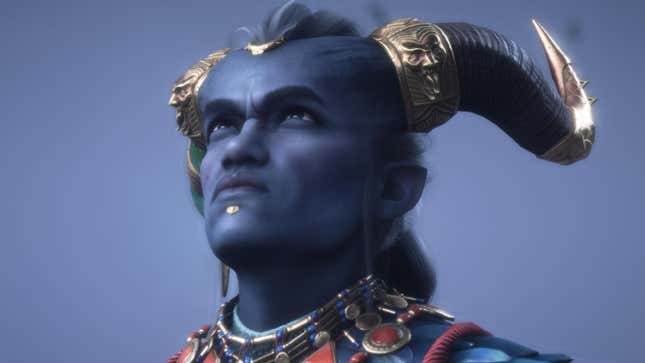Project 2025: A Threat to Civil Rights and Equality
Project 2025: Implications for Civil Rights
In today’s fast-paced and ever-evolving political landscape, understanding the nuances of policies that affect civil rights is more crucial than ever. One initiative that has caught the eye of both advocates and critics is Project 2025. Described as a significant governmental overhaul, many argue that it poses a substantial threat to the civil liberties and rights that have been fought for over decades. But what exactly is Project 2025, and how could it impact the very fabric of our society? Buckle up, because we’re diving deep into this complex issue.
What is Project 2025?
First things first—let’s lay down the groundwork. Project 2025 is an ambitious initiative aimed primarily at reshaping various federal policies through a conservative lens. Spearheaded by a coalition of right-leaning scholars, politicians, and organizations, the project is designed to implement sweeping reforms across several domains, including immigration, education, and especially civil rights.
Think of it this way: just as a sculptor chips away at stone to reveal their masterpiece, the proponents of Project 2025 are looking to carve out what they view as more efficient and effective legislation. However, many worry that their chiseling might eradicate crucial protections that have long safeguarded vulnerable communities.
The Historical Context
To understand the potential impact of Project 2025, we need to take a quick stroll down memory lane. Civil rights movements have shaped America’s identity since the late 19th century, from the abolitionist movement to women’s suffrage to the fight against segregation. Each push for equality resulted in laws aimed at tearing down the structures that upheld discrimination.
Essentially, these movements were like building blocks towards a more equitable society. Just as crucial as these achievements were the laws and amendments that followed—consider the Civil Rights Act of 1964 and the Voting Rights Act of 1965. These legislative milestones set the tone for future progress. Project 2025, however, seems to be preparing for a different kind of journey—one that raises eyebrows and concerns about where such reforms might lead us.
Distorting Civil Rights Law
One of the most alarming aspects of Project 2025 is its potential to distort existing civil rights laws. When we think of laws set in place to protect marginalized communities, we often envision them as shields—protecting individuals from discrimination based on race, gender, disability, and more. However, Project 2025 aims to redraw these lines in ways that could significantly weaken these protections.
Here’s how:
-
Limitations on Protected Classes: Project 2025 looks to narrow the definition of what constitutes a protected class. In simple terms, this means fewer people would have legal backing against unfair treatment. Imagine being sidelined simply because the new legal language doesn’t recognize your identity; it’s like playing a game without knowing the rules that protect you.
-
Redefining Discrimination: The project proposes shifts in how discrimination is defined legally, potentially paving the way for legal loopholes. What was once deemed discriminatory could, under the new frameworks, suddenly become acceptable. This could lead to a free-for-all where companies, schools, and even government agencies could wiggle out of accountability.
-
Impact on Education and Employment: Imagine being denied a job because of who you are or how you identify. Project 2025 may encourage environments where such discrimination is not only prevalent but legally sanctioned. That’s a step backward for anyone who cherishes the principles of equality and fairness.
The Ripple Effect on Key Issues
As we peel back the layers of Project 2025, it becomes even clearer that it’s not just a standalone issue—its implications reach far and wide. Here are some pressing areas that might feel the brunt of this initiative:
1. LGBTQ+ Rights
One of the most vulnerable segments of society, the LGBTQ+ community, stands to lose a lot under Project 2025. This initiative could dismantle current protections that safeguard against discrimination in public services, housing, and employment. It’s as if the walls built to provide shelter could be torn down, leaving individuals exposed to prejudice and bias.
2. Women’s Rights
Women’s rights may also come under scrutiny. The potential rollback of reproductive rights is a chilling thought that has already sparked significant debate. Women could find themselves navigating a landscape where their healthcare choices are more monitored and restricted, undermining agency over their own bodies.
3. Racial Justice
For communities of color, the stakes are particularly high. Project 2025 could further entrench systemic inequalities rather than dismantle them. The echoes of past injustices seem to loom larger as moves are made to erode hard-won protections.
The Role of Technology
In this day and age, we cannot discuss civil rights without mentioning technology. While Project 2025 may twist and obscure essential protections, the internet and social media are often seen as a double-edged sword.
On one hand:
- Awareness and Activism: Technology has been a tremendous ally in spreading awareness and mobilizing activism. Social media platforms serve as a megaphone for underrepresented voices, allowing activists to rally support and highlight issues of injustice.
On the other hand:
- Misinformation and Surveillance: With the rise of technology comes the dark side of misinformation and invasive surveillance practices. Project 2025 may exploit these vulnerabilities, using modern tools for unjust ends. For example, minority groups could find themselves under heightened scrutiny, eroding personal privacy and civil liberties.
The Path Forward
So where do we go from here? It’s easy to feel despondent about the implications of Project 2025 and its potential to infringe upon civil rights. But like any good story, there’s always hope, action, and response.
-
Engagement: Stay informed about ongoing changes and proposals. Engaging with local advocacy groups can put you in touch with actions you can take to support vulnerable communities.
-
Dialogue: Have conversations with your friends and family. You’d be surprised how much awareness can grow from discussions in your own circle.
-
Advocacy: Use your voice to advocate for change. Whether that means writing to representatives, attending rallies, or using social media to speak out, every bit counts.
- Education: Educate yourself and others on the history of civil rights and current threats. Knowledge is power, and a well-informed society is a strong one.
Conclusion
In summary, Project 2025 stands as a controversial initiative that could significantly reshape civil rights law in the United States. Its potential to dilute protections, especially for marginalized and vulnerable communities, is a serious concern that demands attention. As we navigate these waters, it’s critical to remain vigilant, engaged, and proactive in advocating for an equitable and fair society. Remember, civil rights are not just a historical achievement; they require continual nurturing and protection.
Our collective future depends on it.
FAQs
1. What is Project 2025?
Project 2025 is an initiative aimed at reshaping federal policies, particularly focusing on civil rights, through a conservative lens.
2. How might Project 2025 impact civil rights protections?
It could limit the definition of protected classes and redefine discrimination in ways that weaken legal protections for marginalized communities.
3. Who could be adversely affected by Project 2025?
Vulnerable groups, including the LGBTQ+ community, women, and communities of color, could face increased discrimination and weakened rights.
4. What role does technology play in the discussion about civil rights?
While it can facilitate awareness and activism, technology also poses risks regarding misinformation and surveillance that could threaten civil liberties.
5. How can individuals get involved to oppose Project 2025?
Stay informed, engage in conversations, advocate for rights, and educate yourself and others about civil rights issues and threats.







